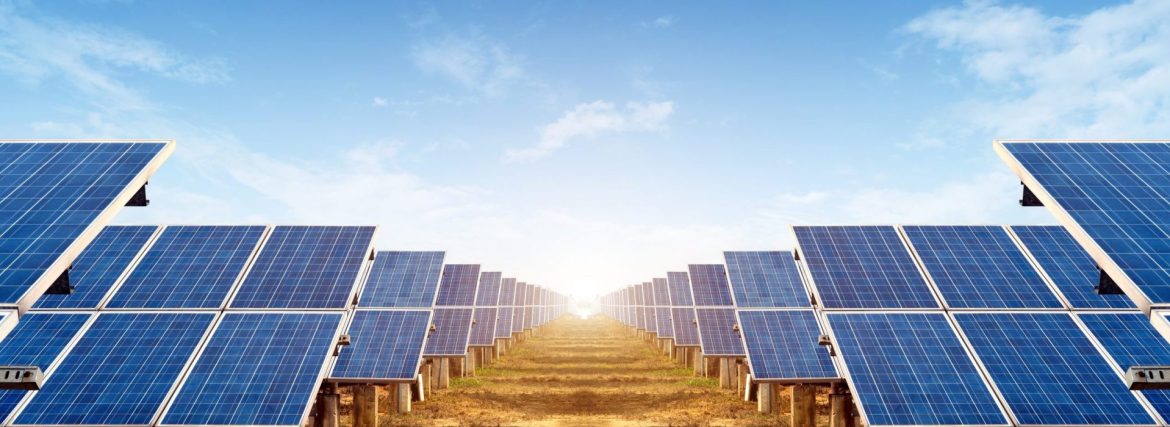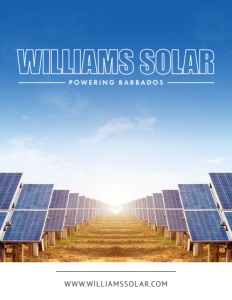Powering Barbados
How one company is helping transform Barbados’ energy landscape through strategic solar installations and industry leadership.
Since 2008, Williams Solar has established itself as one of Barbados’ premier photovoltaic EPC (Engineering, Procurement, and Construction) installers, positioned at the forefront of the island’s growing renewable energy sector. With the Caribbean sun offering abundant natural resources for solar power, the company has capitalized on both geographic advantages and increasing demand for sustainable energy solutions.
“We have been at the forefront of the renewable energy industry as it has progressed over the years,” explains Gleeson Roach, General Manager of Williams Solar. “Apart from installation, we’ve also been involved in many discussions related to the regulatory framework and given our feedback on consultation requests, as well as lobbying for changes throughout the industry.”
As an active member of the Barbados Renewable Energy Association (BREA), Williams Solar has played a crucial role in shaping policies that have accelerated renewable adoption across the island. This involvement in industry development has positioned them as thought leaders in Barbados’ energy transition.
Barbados, like many Caribbean nations, faces high electricity costs due to traditional reliance on imported fossil fuels. The country’s 2030 goal of becoming 100% renewable energy-powered has created fertile ground for companies like Williams Solar to thrive while contributing to national energy independence. With approximately 30 megawatts of photovoltaic systems installed across more than 450 individual projects, Williams Solar has made a substantial contribution to Barbados’ renewable energy capacity.
Regulatory Evolution and Market Growth
The regulatory framework governing solar installations in Barbados has undergone significant transformation since Williams Solar began operations. These changes have directly influenced both project scope and market opportunities for renewable energy providers on the island.
“Through the years from a regulatory standpoint, we’ve seen the introduction of the Ministry of Energy ELPA license process,” Roach notes. “We’ve also witnessed changes in terms of the cap for single-size photovoltaic systems that could be installed per application. Initially it was 50 kilowatts, then moved to 150 kilowatts, to 500 kilowatts, and then to one megawatt.”
This progressive lifting of capacity restrictions reflects Barbados’ growing comfort with higher volumes of solar energy entering the grid. The regulatory evolution has enabled more ambitious projects, including the establishment of a category for systems between one and ten megawatts. These larger installations have become increasingly visible across the Barbadian landscape.
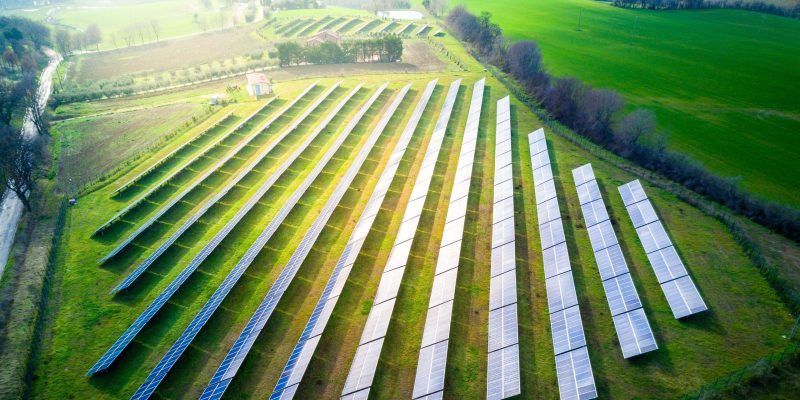
Current regulatory focus has shifted toward energy storage, a critical component for grid stability with high renewable penetration. “Right now, we are seeing efforts for a feed-in tariff for energy storage as well as a regulatory framework for application process and licensing,” Roach explains. “The government has been working recently on establishing competitive procurement, which would allow developers to make applications to supply, build, and operate energy storage systems.”
This transition toward storage integration represents an important evolution in Barbados’ renewable energy approach. Like many island nations with isolated grids, Barbados faces unique challenges in balancing intermittent renewable generation with consistent power demands. The push for energy storage solutions signals a maturing market moving beyond simple grid-tied solar installations toward a more resilient and flexible energy ecosystem.
Meeting Diverse Energy Needs
The visual evidence of Barbados’ renewable energy transition is unmistakable across the island. “If you drive across Barbados, you’ll see a number of solar farms across the landscape ranging from around a hundred kilowatts to 500 kilowatts up to a megawatt,” Roach points out. “Many of them are in the range of maybe 250 kilowatts to one megawatt. As the cap for a single size system was pushed larger, you found that more and more of those larger systems were indeed solar farms, granted that roof sizes are limited for some of the larger systems.”
Williams Solar’s portfolio mirrors this diversity, with installations split between residential and commercial applications. While residential systems typically average around five kilowatts, commercial projects can reach up to one megawatt in capacity. This scale difference means that despite residential customers representing approximately two-thirds of Williams Solar’s total client base by number, commercial installations account for a significant portion of installed capacity.
Public reception to solar energy has been enthusiastic, spurred by economic benefits and government encouragement. “From where I sit being one of the points of contact for the public expressing interest in renewable energy, I would say that the public has really embraced it,” Roach says. “They’ve answered the call from the government for people to get involved and invest in renewable energy systems. There’s been a tremendous amount of response over the years and interest for people to own solar farms or certainly be involved in photovoltaic projects.”
This broad-based engagement across both residential and commercial sectors has helped Barbados make significant strides toward its renewable energy goals. However, Roach notes that recent requirements for storage integration have temporarily limited growth in both segments, presenting a challenge to continued adoption despite strong public interest.
Operations and Workforce Management
The operational model behind Williams Solar’s substantial project portfolio balances in-house expertise with strategic partnerships to maximize efficiency and adaptability in a market prone to fluctuation.
“Here in the Caribbean, we don’t manufacture solar panels and many of the larger components and equipment that are needed, so a lot of it is imported,” Roach explains. “We work directly with manufacturers or distributors for importing equipment—panels, racking systems, other miscellaneous components, PV wire, electrical equipment.”
This supply chain reality necessitates strong international relationships with equipment suppliers to ensure reliable access to quality components. For installation work, Williams Solar employs a hybrid approach, maintaining a core team while supplementing with subcontractors during peak periods.
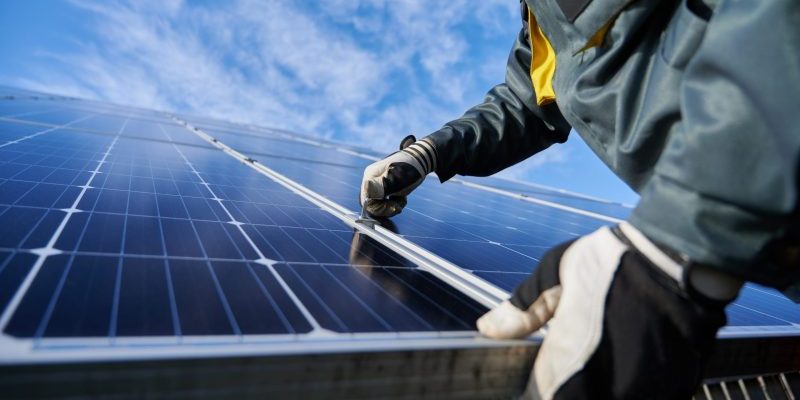
“We have direct employees—installers, technicians, engineers, administrative staff, project management staff,” says Roach. “But we also employ subcontractors ranging from those capable of executing civil works to those who may also be photovoltaic installers. We try to share the work between direct employee staff and utilizing other smaller installation companies.”
This flexible workforce model allows the company to respond to the industry’s inherent cyclical nature. “What we’ve recognized is that you have peaks and valleys related to the quantity of installations that need to be done. It depends on how applications are processed. You may have a lump of applications being approved around the same time, different times of the year.”
Employee retention in this specialized field presents its own challenges, particularly as renewable energy skills become increasingly valuable across markets. Williams Solar benefits from being part of Williams Industries Inc., which offers long-term incentives including an employee share ownership program after ten years of service.
The company also leverages relationships with local educational institutions like Barbados Community College and Samuel Jackman Prescod Institute, which have developed photovoltaic training programs to help build the skilled workforce needed for this growing industry.
Growth, Challenges, and Adaptations
Williams Solar’s financial performance over recent years imitates the broader regulatory and market conditions affecting Barbados’ renewable energy sector, with a clear division between periods of robust growth and more recent challenges.
“If I go back maybe five years, between 2020 and 2022, there was consistent growth, double digits growth,” Roach observes. “I would say 25%, 30% growth annually. However, after 2022 going into 2023 and 2024, there has been a decline, obviously due to the current situation in the industry.”
This significant shift from expansion to contraction highlights the impact of policy changes on renewable energy companies, particularly the increased focus on energy storage integration before further solar expansion. As island grids like Barbados’ approach higher renewable penetration levels, concerns about grid stability and energy intermittency typically emerge, prompting regulatory adjustments that can temporarily slow deployment.
“We are now reliant on energy storage to be implemented onto the grid. Until that happens, projects continue to be stalled and no approvals for new projects have been granted for some time,” Roach explains. “We have seen a decline in 2023 and 2024, maybe as much as 50% decline coming out of 2022.”
Despite these recent challenges, Williams Solar continues working on diverse projects across the island. “In the last two years, we’ve worked on some commercial projects for commercial banks. We’ve worked on several ground-mounted systems as well for privately owned entities. We’ve also worked on remedial projects for the government, some of the community centers and schools across Barbados. And we have a large rooftop system, a one-megawatt system that we’ve been working on over the past 18 months.”
Setting Apart from the Competition
In Barbados’ increasingly competitive solar marketplace, differentiation goes beyond technical capabilities or price points. “Our unique approach to each customer sets us apart,” Roach states. “We tend to be very open, very straightforward with our customers. We provide them with solutions not to benefit us or to make a sale, but solutions that are tailored for them, whatever their constraints may be.”
This consultative approach recognizes that solar installations represent significant long-term investments for clients, with system lifespans typically exceeding 25 years. By focusing on appropriate sizing, quality components, and installations that address specific customer needs rather than maximizing system size or sales margins, Williams Solar has cultivated a reputation for integrity in a market where consumer education about technical options remains uneven.
“I think that people tend to appreciate that and it builds a level of trust,” Roach explains. “We are seen as trustworthy and we maintain a number of values that I think are appreciated.”
This emphasis on trust-building proves especially valuable in small island communities like Barbados, where word-of-mouth referrals and reputation significantly influence purchasing decisions. The solar industry globally has sometimes struggled with perception issues related to aggressive sales tactics or exaggerated performance claims by less scrupulous operators.
By positioning as a transparent advisor rather than merely a vendor, Williams Solar taps into growing consumer preference for ethical business practices and honest guidance. This approach also aligns with broader industry recognition that long-term market sustainability depends on realistic customer expectations and appropriately designed systems. For an island community transitioning toward renewable energy, these relationships built on trust serve both commercial interests and the broader goal of successful energy transformation.
Looking Ahead
As Williams Solar plans for the next phase of Barbados’ renewable energy evolution, the company has identified several strategic priorities. “Our top priorities over the next year or two is focusing on employee engagement in terms of getting our employees trained up to standard,” Roach reveals. “We see energy storage as a big component coming into the market, so we want to make sure that our key persons are trained in this area.”
This emphasis on upskilling reflects the technical shift occurring throughout the renewable energy sector as simple grid-tied solar installations give way to more complex integrated systems incorporating storage. Battery technologies, energy management systems, and advanced inverter capabilities require specialized knowledge beyond traditional solar installation skills.
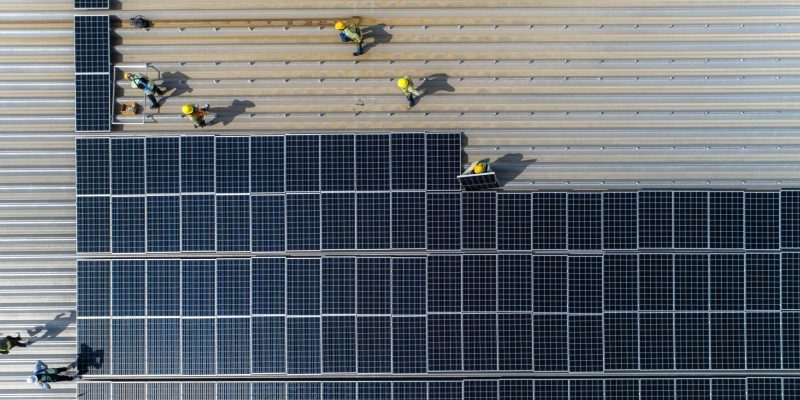
The company’s second strategic focus targets internal efficiency improvements. “It’s a very dynamic business environment now, and everything is so dependent on data and quick turnaround time, and you can achieve these things through efficiency in the operations,” Roach explains. “We’ll also be looking at improving the efficiency of our operations.”
For Williams Solar, these dual priorities of workforce development and operational enhancement create a foundation for sustained success as Barbados continues its clean energy journey. With energy storage integration expected to unlock the next phase of solar growth on the island, the company’s proactive preparation positions them to maintain their leadership role in Barbados’ renewable energy transformation while delivering lasting value to customers across residential, commercial, and public sectors.
At a Glance
Who: Williams Solar
What: Leading photovoltaic EPC (Engineering, Procurement, and Construction) installer with 30+ megawatts of installed capacity across 450+ systems
Where: Barbados, Caribbean
Website: www.williamssolar.com
PREFERRED VENDORS/PARTNERS

GETTING JOBS DONE SINCE 1966. We are the Lifting and Rigging Specialists for Barbados and the Caribbean with a varied and technologically advanced fleet of All Terrain, Tower, Crawler and Knuckleboom Cranes to rent. Our All-Terrain Cranes have a lifting capacity ranging from 40 tons to 450 tons.
Crane and Equipment Ltd www.crane.bb
Established in 2013, PRO Construction is a general contractor experienced in construction management, on-site supervision for residential and commercial construction, renovation projects and maintenance. The company also specializes in the installation of PhotoVoltaic ground mount and roof racking systems while maintaining site safety. We also ensure effective and efficient management of projects and their timely completion within budget.
PRO Construction Services apadmore@proconstructbb.com

